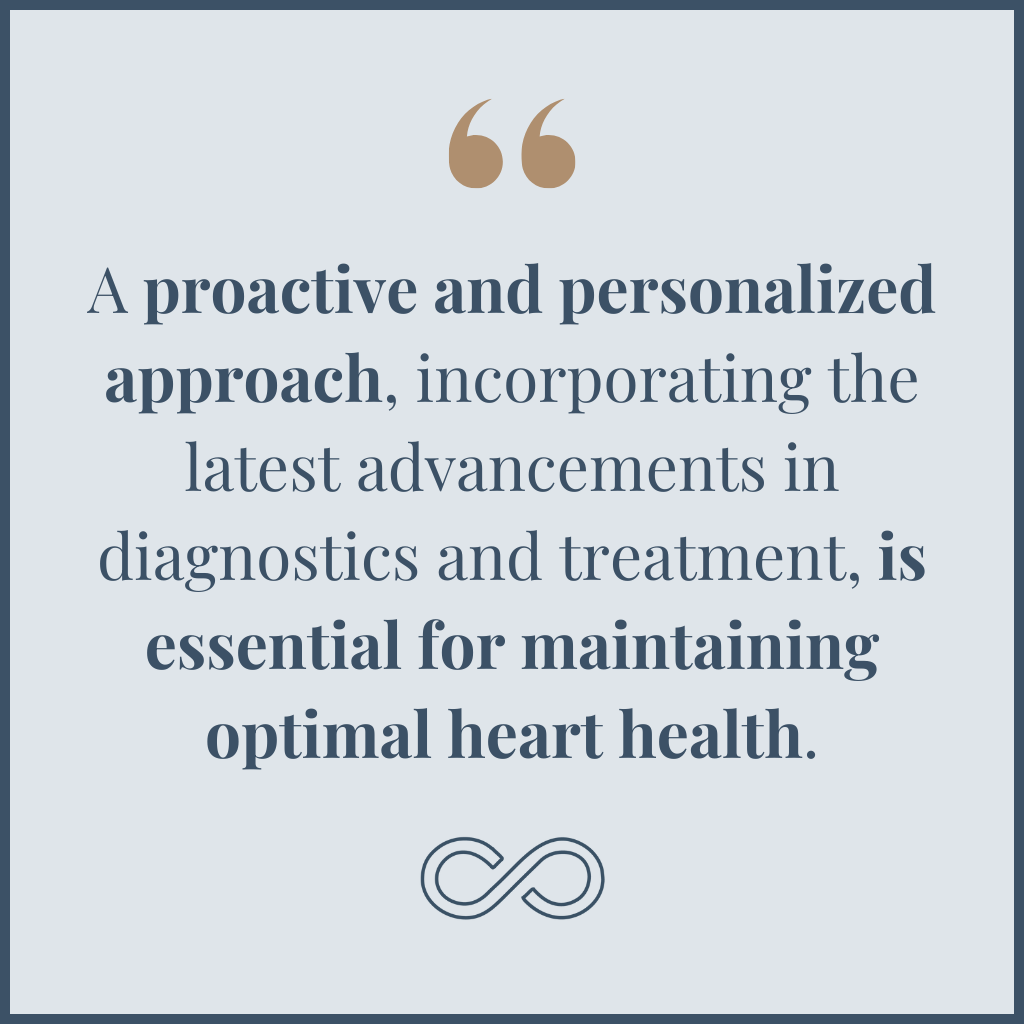Download file | Play in new window | |
In the realm of healthcare, few endeavors are more crucial than understanding and maintaining a healthy heart.
At Brentwood MD, we take a proactive approach to cardiovascular health, partnering with our members to identify potential risks and implement effective preventative measures. To that end, we sat down with cardiologist Dr. James Gentry for an insightful conversation about cutting-edge advancements in cardiovascular care.
Dr. Gentry’s passion for cardiology stems from a family history of heart disease and early exposure to the medical field through his father’s work as a family practice physician. Today, he brings a wealth of knowledge and experience to the table. With advanced training in cardiac imaging, including echocardiograms, cardiac CT scans, and cardiac MRI, he provides his patients with an unparalleled level of care and insight into their heart health.
The Power of Prevention: Starting Early and Staying Vigilant
Dr. Gentry emphasizes the importance of early intervention, noting that the foundation for heart disease can be laid in adolescence. For example, atherosclerosis, a condition where plaque builds up inside the arteries, often begins in our younger years. While the more serious consequences of heart disease may not surface until later in life, adopting healthy habits early on mitigates long-term risks.
Regular exercise, a balanced diet, and avoiding smoking are some of the key pillars of cardiovascular disease prevention that Dr. Gentry highlights. These lifestyle modifications, while seemingly straightforward, play an enormous role in minimizing the risk of developing heart disease and its associated complications.
Expanding on the importance of early detection, Dr. Gentry stresses the need for regular checkups, even for those who feel healthy. This includes monitoring cholesterol levels, blood pressure, and blood sugar levels, as these factors can provide crucial insights into your cardiovascular health. He also emphasizes the importance of understanding your family history, as a predisposition to heart disease significantly increases your risk.
Beyond Traditional Risk Factors: The Role of Inflammation and Autoimmune Conditions
While factors like high cholesterol, high blood pressure, and diabetes are widely recognized risk factors for heart disease, Dr. Gentry sheds light on the oft-overlooked role of inflammation. Systemic inflammation, which can be caused by many factors, including autoimmune conditions like psoriasis and lupus, accelerates the development of atherosclerosis. This insight underscores the importance of managing inflammation and autoimmune conditions effectively to mitigate cardiovascular risks.
“We’ve always treated high cholesterol with statins, which fortunately, drop your cholesterol levels, but also have an anti-inflammatory property to them. So we’ve actually been treating both sides of things,” says Dr. Gentry.
Advanced Imaging: A Clearer Picture of Your Heart Health
Dr. Gentry is passionate about the power of advanced cardiac imaging, which allows for a non-invasive and highly detailed look at the heart’s structure and function.
One such imaging technique is the coronary calcium score, a CT scan that measures the amount of calcium in your coronary arteries, providing insights into the presence and severity of plaque buildup. While a useful tool, this scan only detects calcified plaque — not the softer, more vulnerable plaque that can lead to heart attacks.
“Although a coronary calcium score gives you a prediction of risk and whether there is plaque present, there may be hidden plaque…that could be soft, that could be hiding,” says Dr. Gentry.
Coronary CT angiography, on the other hand, is a more advanced imaging test that provides a comprehensive, three-dimensional view of the coronary arteries. This test uses a contrast dye injected into a vein to highlight the arteries and can detect both calcified and non-calcified plaque. This detailed visualization enables physicians to assess the severity of any blockages or plaque present and determine the most effective course of treatment.
Beyond the Heart: Cardiovascular Risks in Unexpected Places
Dr. Gentry points out that atherosclerosis isn’t limited to the heart; it can affect arteries throughout the body. He highlights the importance of recognizing the potential for plaque buildup in other areas, such as the carotid arteries, which supply blood to the brain. Atherosclerosis in these arteries can increase the risk of stroke, leading to death or long-term disability.
Interestingly, Dr. Gentry points out that screenings for other health concerns sometimes provide unexpected insights into this cardiovascular risk. Lung cancer screening CT scans, for instance, capture images of the entire chest, including the heart. Similarly, mammograms can detect breast arterial calcification, which has been linked to an increased risk of heart disease. These findings underscore the interconnectedness of our health and the importance of comprehensive medical evaluations.
Navigating Cholesterol Management: Lifestyle Modifications and Pharmaceutical Interventions
When it comes to managing cholesterol levels, Dr. Gentry emphasizes the importance of a multifaceted approach. Lifestyle modifications, such as adopting a heart-healthy diet rich in fruits, vegetables, and lean protein sources, are crucial. He recommends the Mediterranean diet as a sustainable and effective way to lower cholesterol levels.
However, Dr. Gentry acknowledges that lifestyle changes alone may not be sufficient for everyone. In such cases, statins, a class of cholesterol-lowering medications, are often the first line of defense. Statins have been shown to effectively lower LDL, or “bad” cholesterol, while also exhibiting anti-inflammatory properties, offering dual benefits in combating heart disease.
For those who don’t achieve their cholesterol goals through statins, or for those who experience side effects and need to discontinue the medication, alternative like PCSK9 inhibitors offer a powerful solution. These medications have shown remarkable efficacy in significantly lowering LDL cholesterol levels, even driving them down to single digits in some cases.
Regarding aspirin therapy, Dr. Gentry has an up-to-date take: “As we’ve gotten better about treating blood pressure and cholesterol levels, the benefit of aspirin has dwindled, but the risk of aspirin — the increased risk of bleeding — has not.”
Dr. Gentry also addresses the common question of dietary cholesterol’s impact on blood cholesterol levels. He explains that limiting dietary cholesterol doesn’t necessarily translate into significant reductions in blood cholesterol levels. Instead, he recommends focusing on reducing saturated and trans fats, which have a more direct impact on cholesterol levels.
Chest Pain: Deciphering the Signals and Seeking Timely Care
Chest pain is an unfortunately common concern and brings with it much anxiety and uncertainty. It can be a symptom of cardiovascular distress, but it isn’t always.
Dr. Gentry emphasizes the importance of recognizing the classic symptoms of angina, such as chest tightness, pressure radiating to the arms, and shortness of breath, particularly during exertion. However, he cautions that not everyone experiences chest pain in the same way, highlighting the importance of individualized assessments.
“Women oftentimes have different symptoms than men, and so we can’t just use that for everybody,” he says.
He remembers one instance with a patient who was experiencing chest pain, initially attributed to acid reflux, that turned out to be a more serious cardiac issue. This case highlights the importance of seeking medical attention for any concerning chest pain, as early detection and intervention can be life-saving.
The Future of Cardiovascular Care: Advancements on the Horizon
As we concluded our conversation, Dr. Gentry shared his enthusiasm for the future of cardiology, particularly regarding the use of GLP-1 agonists, a class of medications traditionally used for diabetes management, in cardiovascular care. Studies have shown that GLP-1 agonists, such as semaglutide, not only help regulate blood sugar levels but also offer significant cardiovascular benefits, reducing the risk of heart attack, stroke, and other cardiovascular events.
“From a cardiologist’s perspective, it’s fascinating how many sorts of diabetes drugs that we’re now using [that] have shown drastic benefits in reducing cardiovascular events,” says Dr. Gentry.
A Collaborative Approach to Cardiovascular Wellness
At Brentwood MD, we share Dr. Gentry’s dedication to providing our members with the most advanced and comprehensive cardiovascular care. We believe that a proactive and personalized approach, incorporating the latest advancements in diagnostics and treatment, is essential for maintaining optimal heart health.
If you’re concerned about your heart health or have questions about the topics discussed in this blog post, please don’t hesitate to reach out!


Dr. Wright joined Brentwood MD in 2022 as the model allows him to spend more time connecting with patients and build a foundation of exceptional care. He is a Nashville native and completed his family medicine residency at the University of Tennessee Health Science Center, where he also served as Chief Resident. He believes that your health deserves a prominent position on your priority list, and would be honored to serve you and your family.







